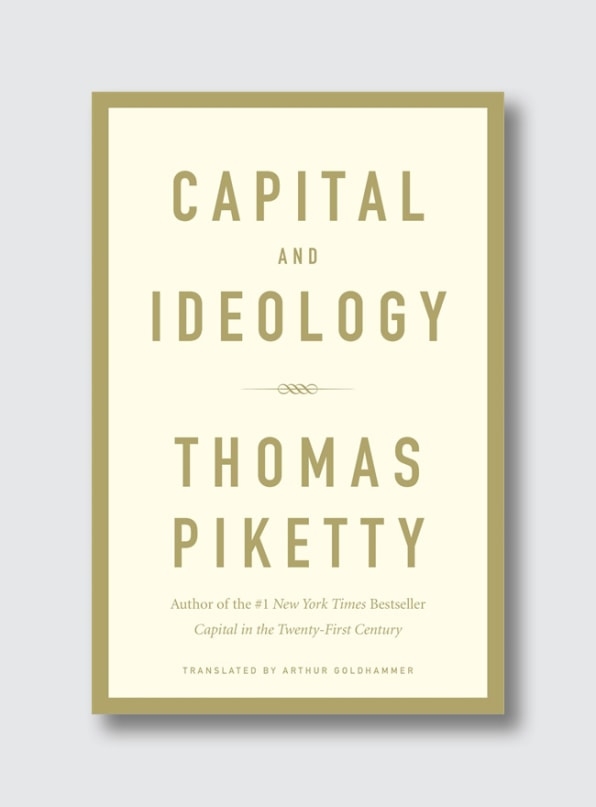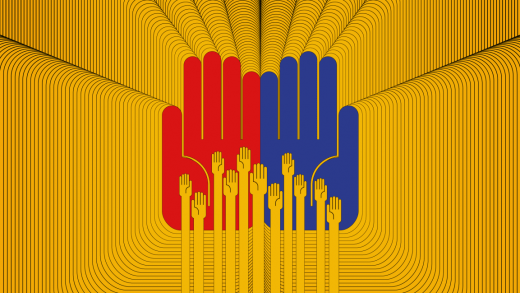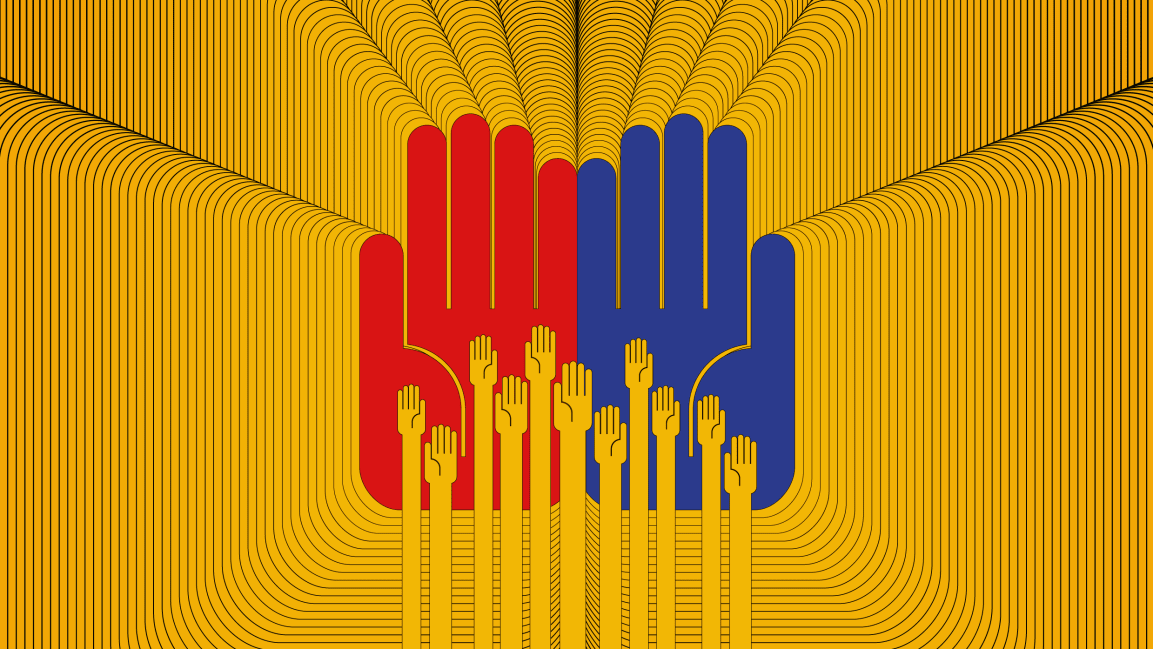Thomas Piketty explains why the world is ripe for ‘participatory socialism’
The recovery from the financial crisis was reportedly in full swing, with unemployment on the decline and the economy seemingly on the mend. The advance of digital culture was hurtling forward, shortening attention spans and leading print book sales to plummet yet again amid a sharp drop in the number of Americans reading for personal interest. So, in 2014, it seemed highly improbable that a dense near-700-page book by a French economist would become a surprise bestseller around the world.
Thomas Piketty’s “Capital in the 21st Century” took the publishing world by storm that year, selling two million copies and sparking just as many cocktail-party conversations. It was the Harry Potter series for grownups, with some people making sure they were spotted toting it on the subway, and the Financial Times calling it the “most important book of the new millennium.”
Looking back, the book’s massive success makes perfect sense. Income inequality was getting worse around the world, even more so during Obama’s recovery, which was benefitting primarily the wealthy and not translating into good jobs with good wages for a vast number of Americans. With deep analysis of tax records going back centuries, Piketty was able to unequivocally demonstrate this disparity, combing an academic rigor with lucid prose.
Six years later, the world looks very different in ways that could hardly have been anticipated. Though income inequality has become a concern for conservative and liberal thinkers, only the right wing has taken advantage of this crisis with electoral victories for Donald Trump, Brazil’s Javier Bolsonaro, and the UK’s Boris Johnson, among others.

That scenario partly motivated Piketty to write his new book, a sequel called “Capital and Ideology,” that’s even longer (1,065 pages) but just as powerful. In addition to troves of analysis of everything from Brahmins in precolonial Hindu kingdoms to the merchant class in France, he delivers his solution in the form of what he calls participatory socialism, which seems to echo proposals made in this election cycle by both Bernie Sanders and Andrew Yang—”a progressive income tax and a tax on inherited wealth to finance both a basic income and a capital endowment” for each citizen.
I talked to Piketty by phone this week to discuss his book, the meaning of populism, and his thoughts on the U.S. election.
This interview has been slightly edited for clarity and concision.
Fast Company: The first Capital in 2014 galvanized the global debate about income inequality. Since then, the world has moved in directions that many failed to predict—from the rise of nationalism and right-wing parties to the election of Trump and anti-immigrant fervor. Did that surprise you?
Thomas Piketty: I’ve always thought that the main risk of rising inequality is the rise of nationalism. In a way, this is what we had already in the first half of the 20th century, between 1914 and 1945. At the time, there was a huge political and social tension due to very large inequality within country and also very large inequality between countries. And these were exploited by various nationalist political movements in order to use the frustration and the anger of the people to push their nationalist solutions and policies.
And I think today, we are facing the same kind of trends. And I think it’s not a coincidence with Trump in the U.S. and Brexit in the UK, the two countries where the rise in inequality in the 1980s and 1990s has been the largest in the Western world. This is, to a large extent, the wrong response to a real problem, which is that there is no better alternative solution proposed to the electorate. A big part of the electorate that feels abandoned by the traditional parties will ask for this kind of nationalist solution.
Now in the long run, this is not going to work. Nationalism is not going to solve the problem of rising inequality, is not going to solve the problem of global warming. All of these problems require a lot of international coordination. But unfortunately at this stage, nationalism is a message that is easier and simpler to deliver than the kind of message I am pushing based on social federalism and participatory socialism, which is more complicated and more demanding than just saying, “We are going to return to the nation state, we will have strong border, strong protection of national identity.” That’s a very simple message, too simple. But unfortunately, that kind of simple message can win the day, at least until a certain point.
FC: It’s certainly true that the Democratic party in the U.S. and other liberal parties across the world have become the parties of globalization. To address that scenario, in which working-class voters left behind by globalization find themselves drawn to right-wing nationalist parties, you suggest increasing investment in public universities and improving the admissions chances of the disadvantaged. But what else should the Democratic party be doing to renew its traditional connection to working class voters?
TP: Regarding education and access to education, access to health for the lower and middle class, I think the kind of platform that [Bernie] Sanders has been proposing goes in the right direction—debt relief for people who have large student debt and medical debt, better funding of public universities, progressive wealth taxation. I think this can make a big difference for a large part of the population that is facing difficulty to access higher education and to access property. The level of concentration of property in the U.S. right now is at a historical high, the bottom 50% of the U.S. population owns less than 3% of total wealth whereas the top 1% owns close to 40 percent. The amount of concentration of wealth is not only unfair, it’s inefficient from an economic standpoint because you have lots of children in the bottom half of the population, lots of people who have lots of ideas to participate in the economy, who have high potential, but they cannot pursue that potential with this kind of inequality.
FC: I always think about that. You think about people who are just living paycheck to paycheck, and worried about paying their bills. And if you’re under extreme financial stress all the time, it makes it more difficult to think creatively and to have the time and opportunities to pursue creative dreams, entrepreneurial ideas because you’re constantly strapped. And that’s not good for a country that is founded on the free market, that prides itself on its entrepreneurial spirit.
TP: Exactly, this is why at the end of the book, I describe a system of inheritance for all. What I’m proposing is a society where everybody can access property. Everybody at age 25 would receive $120,000. This makes a big difference. For people who own millions, they don’t realize that when you own $0 or you have debt or own close to $0, you cannot really take your time to make decisions. You have to accept whatever comes to you, any wage or any job, you have to take them in order to pay your bills, to pay your rent. You’re in a very weak negotiating position. The system of inheritance for all that I am describing in my book is really a way to transform the structure of bargaining power in society and to bring more equal economic participation for all socioeconomic groups.
FC: Your analysis seems to assume that the richer the rich get, the poorer the poor get. But some have noted that it’s not really a zero-sum game; that if there’s enough economic growth, then the poor do better, too. Should the focus be less on sharply increasing taxes on the wealthy—like up to 80, 90 percent—and more about lifting up the fortunes of the poor and middle class? And wouldn’t that be more politically palatable? Bernie Sanders always talks about the millionaires and billionaires, but I wonder whether working-class voters care much about that. They don’t care if someone else is rich, they just want to see their own incomes increase.
TP: Well, the billionaire tax is pretty popular. Of course we don’t want complete equality. But we don’t need people to accumulate billions or dozens of billions of dollars. The idea that because one individual had a good idea or achieved a lot at the age of 30, that you should have complete control and complete decision-making power at age 50, at age 70, at age 90 at very large companies, that makes it difficult to make good decisions. We need managers and engineers and workers to participate in the decision-making. Most entrepreneurs are not billionaires, most entrepreneurs actually have a million or a few dozen million. This is already very successful and this is what makes the economy very successful, this kind of accumulation, not having a hundred billion of dollars.
FC: In chapter 13, you mentioned how recent increases in income inequality have been paired with an increase in opacity about financial transactions. Would more transparency about tax avoidance strategies and how people’s incomes accumulate motivate people to push more for changes to the system?
TP: We have organized globalism and capital flows in a way so as to create opacity, so as to make it very difficult to redistribute wealth. So the treaties organizing capital flows that have been gradually developed since the 1980s and 1990s, they allow rich people to accumulate wealth by using the public infrastructure or the public education system of the country. And then you can with the click of a button transfer it to wherever you want, and nobody can follow where it goes. This is a very sophisticated legal system at the international level that has allowed this to happen. And this is what needs to be changed. In effect, this is like the equivalent of in the 19th century how, in order to prevent redistribution from happening, they had a censitary system where only the rich could vote.
FC: You have that one section about populism and why in a lot of ways populism is the wrong word or a bad word to use. But given that there were populists you’d agree with, especially in America in the early 20th century in the Midwest, especially in farming, who were socialists and social Democrats. So why is that a bad word to use?
TP: I prefer to talk about socialism or social democracy because those words refer to the transformation of the property regime and how you organize property as opposed to the capitalism system based on private property. How you give more rights to workers, more rights to citizens, to access property. The word populism is focused on people’s power, which anyone in a democratic system should support, but it’s a bit empty, it doesn’t really say much about what really you want to do. And that’s the problem with this word is that it can be used for completely different situations: right-wing populism, left-wing populism. In the end, this can be a very useful word for people who want to be in the center but are in fact very conservative about economic policy and fiscal policy. It’s true that if you go back in time, one century ago, this term was used as part of a program of redistribution, which contributed to the movement to bring more equality in the U.S. and the creation of an income tax. It was part of a movement against oligarchy and financial concentration among very large companies. But the word has a history and at some point in time, some words can be useful. But today, given all the right populism, this term is not very useful.
FC: Now do you see, looking to the future as there’s increasing automation happening around the world and the increasing use of AI and machine learning. As you know, you read about how there are two million truck drivers in America and within five or 10 years they could all lose their jobs to self-driving trucks. Combined with the changes in privacy and how, like with Facebook and all the other scandals in the last few years, people are giving up their private data to these free services. Do you see that there’s a danger that the income inequality we have now could be much worse in 20, 30 years given the way that technology is changing our society and how that technology is concentrated in the hands of just a few people?
TP: I think automation makes the ownership of the machine and the ownership of intellectual property even more important. We have the machines, we have an increasing number of patents, and so the question of who controls the machines and owns the patents and the income flow associated with these properties becomes more and more important. And the public regulation of ownership, what are the rights of property owners as compared to the rights of workers, the rights of the government, because there’s a lot of public investment and public research that for decades or even centuries has led to the accumulation of knowledge in electronics, computer science, biology, etc. You should not be able to become a full owner and in effect expropriate the rights of society, which has contributed to the production of this knowledge. And the privacy concerns you mentioned, it’s a very good example of how we stopped putting rules on certain forms of ownership and economic activity. It’s very paradoxical because we’re in this age of great opacity as far as public knowledge and public statistics where ownership is concerned. And then we’re in this age of Big Data for private monopolies that can do what they want with your private data. So I think we should have much more concern when it comes to private ownership and much more protection when it comes to personal data.
FC: To return to American politics, do you think there’s a good chance that President Trump will be re-elected or can Joe Biden, as it looks like he’ll be the nominee, attract the working class voters that Democrats need to win?
TP: Well, if Biden is selected, I hope that he will take some of the good ideas that Sanders and Warren were pushing and will try to bring some of the young voters who have been so enthusiastic with Sanders, try to bring them back in, which Hillary Clinton tried to do but did not completely do four years ago. I think that Sanders has not been treated very well by the mainstream media so far. And that is not good, because the level of electoral participation among the working class is very low. And the only way to bring more electoral participation is to shift the concerns of the Democratic party in a way that Sanders has tried to do. People deserve solutions and many of them have just stopped listening to politics a long time ago. And it’s going to be difficult but there’s no other solution than to keep trying to go in that direction. Sometimes it’s a temptation among the Democratic leadership to be cynical and to decide, ‘OK, there’s nothing we can do to bring these people back to the voting booth so we just forget about them.’ And that is what brings some of these voters to Trump.
(47)



